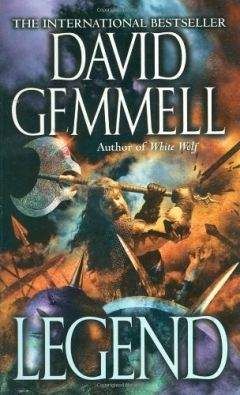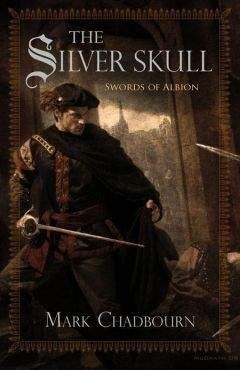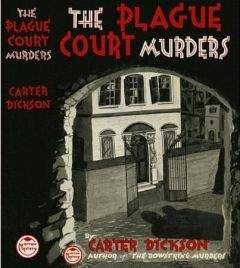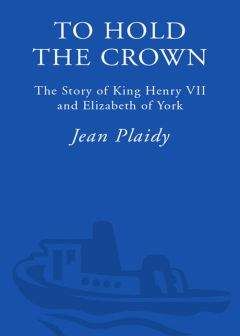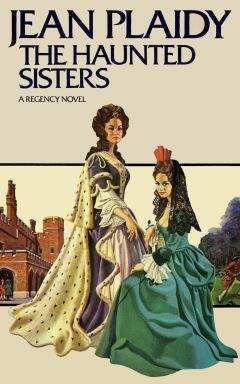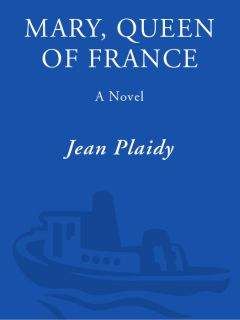Jean Plaidy - For a Queens Love: The Stories of the Royal Wives of Philip II

Скачивание начинается... Если скачивание не началось автоматически, пожалуйста нажмите на эту ссылку.
Жалоба
Напишите нам, и мы в срочном порядке примем меры.
Описание книги "For a Queens Love: The Stories of the Royal Wives of Philip II"
Описание и краткое содержание "For a Queens Love: The Stories of the Royal Wives of Philip II" читать бесплатно онлайн.
“Yes, Father.”
“Then your task will be to extend our Empire and to lose nothing that we hold, for there will be others eager to seize it. Fight to the death any who stand in your way … as I have fought France, England, and the German Princes.”
“Yes, Father.”
“And there is another enemy whom you must fight more relentlessly than any, for on that fight depends the salvation of Christendom. Do you know who that enemy is?”
Philip had the answer ready. “It is the heretic.”
The Emperor became a different man when he spoke of the heretic. The blue eyes lost their laughter and the jutting jaw showed how cruel he could be.
“The Holy Inquisition will join the fight with the chevalet, with the pulleys, with the red-hot pincers, with the wheel and the flames. It is your sacred duty to destroy them wherever you find them. If you hesitate to do so, you will destroy your own soul.”
“Yes, Father.”
“You must learn more of the holy work of your great-grandmother, she who is called Isabella the Catholic. You must learn how she worked with the holy monk, Tomás de Torquemada. You must learn more of the most sacred and holy Inquisition.”
“I have learned much of these, Father.”
“Then that is well. You cannot learn too much. You cannot hunt the heretic too zealously. And when you have found him, his torture cannot be too prolonged, his death too painful.”
“No, Father.”
“Now, my son, there is one thing that gives me some alarm. You have learned some of your lessons well, but in other matters you are not as learned as some of the Princes of Europe. You must speak French fluently, for who knows, one day I may find a French bride for you. Now, it would not be entirely necessary for you to speak with your bride in her own language, but it would not be amiss. Then you should understand Latin. You must speak Italian, German … Holy Mother of God, you must be able to speak with all your subjects. Nay, do not look downcast. The fault is not yours. You have not been given the tutors so to teach you. That shall be remedied without delay.” The Emperor grasped his son’s arm. “I should like to feel a little more flesh on these arms. I should like to see you shoot up faster. You sit a mule adequately, but a mule could not carry the Prince of Spain into battle. I should like to see you master a fiery steed. We must find a mount worthy of the Prince of Spain. We must find tutors. Have we not half the world in which to find them? You say little, my son. ‘Yes, Father.’ ‘No, Father.’ You are solemn for your years. Never mind. That is how I would have it. You will do well. I prophesy greatness for you. Go now, and later we will talk again.”
Philip bowed with dignity and left his father. He was excited by the interview, yet filled with apprehension at the thought of the future.
Don Juan de Zuñiga surveyed his pupil with some dismay. He had been courteous enough when the Emperor had brought them together; he had bowed with the ceremony Philip expected; he had walked at a respectful distance behind the Prince when they went into the stables; but as soon as they were there his manner changed.
The big man leaned forward and felt the Prince’s arm.
“Your Highness will have to develop his muscles.”
“If I wish to, I shall,” answered Philip haughtily.
“If you wish to ride a horse and learn to fence, you will, your Highness,” was the grim rejoinder.
Some princes would have lifted their whips and struck a servant for such familiarity; but Philip hesitated. His anger was cold. He would wait.
“Now mount,” said Don Juan.
The man had been Commendador Mayor of Castile and he had spent much of his time at court, so he should have known how to address a prince. The Emperor could not know what an insolent creature he was or he would not have entrusted him with this task. Philip ignored the command. He stood very still, and only the heightened pink of his cheeks showed his anger.
“Well?” said the intrepid Don Juan. “Did your Highness not hear?”
“I could not believe that you addressed me,” said Philip. “I am not accustomed to being addressed as though I am a serving-boy.”
“Then I crave your Highness’s pardon. It will, I fear, delay your Highness’s tuition if your Highness must be addressed by all your titles on all occasions. What if your Highness’s life should be in danger? Say the horse bolted? Must I crave your gracious permission to act before I aid you? Must I say, ‘Your Highness, I fear your horse has bolted. Have I your most gracious permission to …’?”
“Enough!” cried Philip. “My father has chosen you to teach me to ride as he thinks I should, to fence and to acquire those tricks that will enable me to take part in tilts and tourneys. For that reason I will allow you to teach me. But I will not endure your impertinence, and if there is more of it I shall ask my father to find me a new teacher, and the old one shall not go unpunished.”
“Your Highness has spoken.”
During the riding lesson the Prince’s anger was increased, though none would have guessed it as he sat his horse.
“Heels down. Back straight. Grip with your knees. Do you want a tumble?” Was that the way to speak to the heir of half the world?
“Saved you that time! A pretty pass if I had returned the Prince to his family with a broken nose, eh?”
Philip did not reply; but he had made up his mind.
And when the lesson was over the man had the effrontery to say: “Your Highness needs much practice. Why, you sit your horse like a bag of grain.”
As soon as he was alone with his father, Philip said: “Father, I must have a new teacher.”
“A new teacher! Why, Zuñiga is the best horseman in Spain. He’s a master fencer too. There could not be a better teacher for you.”
“But I cannot endure his insolence. He spoke to me as though I were … any boy learning to ride. He said I sat my horse like a sack of grain.”
Charles drew his son to him so that Philip could smell the garlic on his breath. “You were a boy learning to ride this morning, my son; and a prince learning to ride must learn all the tricks that any boy must learn. I saw you ride into the stables, and, Philip, you did look like a sack of grain.”
The boy did not speak, but his usually pale cheeks were fiery red. He felt that he would die of shame.
The restraint of the boy never failed to astonish Charles. He softened as he said: “Listen to me, my son. If Zuñiga were to flatter you and be only solicitous of ministering to your wishes, he would be like the rest of the court, and you would have one the less near you to tell you the truth—and a worse thing cannot happen to any man, old or young; but most of all to the young, for their want of experience does not enable them to discern truth from error. You are a wise boy and I rejoice in your wisdom. Do not be downcast. You have had a riding lesson this morning, but you have had too an even more valuable lesson. You have learned it well, I know.”
Charles was right. Philip had learned yet another lesson, and he knew that it was more important than the management of horses.
In a room of his own house in Salamanca, the Prince sat at a table listening to the voice of his tutor, the learned Dr. Juan Martinez Pedernales. Pedernales—which meant “flint”—was not a name likely to endear its owner to his pupils, so the professor had somewhat ingeniously latinized it, as so many learned men like to latinize their names, and so was always known as “Dr. Siliceo.”
He was fat, fond of good living, preferring to teach in comfort. It was, therefore, great good fortune to have been selected by the Emperor and his wife to tutor their son. What a change from teaching the poor boys of the University, who loved learning so much that they starved for it, begged for it, and came shivering with cold into the University of Salamanca, digesting knowledge in place of the food they could not afford to buy!
To this great seat of learning had come the Prince, riding in state to the town in the valley not far from the Portuguese border. Salamanca was one of the most notable centers of learning in the world, so that it was inevitable that Philip should be sent there. He could not, of course, be allowed to mix with the poor students or even the rich students. He had his own house in the town, with a full complement of attendants and guards.
With him had come his young cousin, Maximilian, who would one day marry Maria, Philip’s sister, and return with her to Vienna. There was also the Prince’s beloved friend, whom he was delighted to have with him—Ruy Gomez da Silva. These two boys took their lessons with Philip, and these lessons were made easy by Dr. Siliceo. In competition with these two boys—although Ruy was so much older and in any case by far the cleverest—Philip was always the one to be especially commended. The doctor made it his pleasure to see that Philip always knew the answers he was called upon to give; he never failed to compliment his royal pupil on his astuteness, his grasp of a problem or a translation.
The weak blue eyes would regard the doctor solemnly, and there would be no sign of pleasure in the pale face. Philip hid his thoughts, which were: But for Zuñiga’s treatment of me and my father’s comments on it, I verily believe I should imagine I am cleverer than Ruy and Max in spite of some evidence to the contrary. How right my father was! A prince, and especially one who is to be king, should be more ready to believe those who say harsh things of him than those who applaud.
Yet in his grave manner he accepted the compliments of Dr Siliceo, for he understood that in the scholar’s mind there was the ever-present reminder that one day this pupil of his would rule Spain; and, even while knowing this, Philip could not help preferring Siliceo to Zuñiga, who was still instructing him in physical exercise. This might have been because physical exercise did not greatly appeal to him and he found it easier to apply himself with keenness to learning than to fencing or the hunt.
History—and in particular the history of Spain—enchanted him. When he rode out incognito with Ruy and Max, as he liked to do, he would gaze with awe at the landscape, at the distant sierras—and they seemed ever-present, near or far, in whatever part of Spain he happened to be—and think of the times when the Romans had dominated the country, of the coming of the Visgoths; and chiefly he pondered on the great Mohammedan conquest. Then he would feel a fierceness rising within him, for everywhere in the country the influence of the Infidel was apparent. The name of his great-grandmother, Isabella the Catholic, was frequently mentioned; and as he sat there at the table, pale and impassive, inwardly he was swearing an oath, pledging himself to drive the heretics from the world as Isabella had driven the infidels from Granada.
The voice of Dr. Siliceo rose and fell in that quiet room as he spoke of the past.
“Spain was broken. Her children were exiled or dead. Her noble language was lost, and in the mountains and the plains was heard an alien tongue. Blackamoors were in command, and the slaughter was great. None was left to mourn save those women who had been taken as slaves to the foul Infidel.”
Philip clenched his hands, but he did not speak. He knew that the expulsion of the Moors had not been effected until nearly eight hundred years had elapsed. Everywhere in Spain was the mark of the Moor to bring humiliating reminders. Only the mountainous regions of the north and the northwest had escaped, but everywhere else it seemed the Moors lived on—in the buildings, in the customs and habits of the people, in the shape of a face and the slant of a pair of eyes. Arabs and Berbers had left their mark forever on the land of Spain.
The Cid had been a great hero, but it was not until the coming of Ferdinand and Isabella nearly four hundred years later that Spain had been freed, for that pair had conquered the Moorish stronghold of Granada itself. Isabella and Ferdinand had grown rich, and Spain had grown rich, and under them the dwarf Inquisition had grown to a monster.
Philip was stung into speech suddenly. He said: “And now we have the heretic. We will attack them as we have attacked the Moor and the Jew.”
Ruy looked at him with a faint smile curving his lips. He knew his friend well; he knew that beneath the grave calm a fierce spirit burned. It would be amusing to watch the great Siliceo pander to the Prince’s ideas.
Maximilian, thinking of the chase which he longed to join, smiled too. Now, he thought, the old man can marvel at the cleverness of our Prince. Let him. It means no questions for me to answer, and who cares about the Moors and Moriscos, the Jews and the Berbers nowadays? What does the past matter when there is the future before us? Let them talk, Maximilian would sit dreaming, not of the past, but of the forest … the boar hunt and himself leading the chase.
“Your royal Highness has found the root of the matter as usual. Now we have the heretic! And we must drive him from the Earth with all the strength we once used against the Infidel.”
“We have the Inquisition to help us,” said Philip.
“And for that we must thank your Highness’s great-grandfather and great-grandmother.”
Ruy listened to them. He thought of the members of the Inquisition, the monks in their black robes with the masks of anonymity over the faces. They came to a man’s house at midnight when all was quiet, and knocked at the door. They were admitted by trembling servants, for there was not a man or woman in Spain who did not know the alguazils—those familiars of the Inquisition—when they saw them. The victim would be dragged from his bed; he would be gagged with the Inquisition’s terrible gag—an instrument that had been made in the shape of a pear when shut, but which was put into the mouth and made as big as desired by means of a screw. This was the first taste of torture to come. And through the night the victim was taken to the underground prisons of the Inquisition.
Ruy broke out in a sweat as he thought of it. During the last years he had come to hate cruelty. He was no coward, but he would not dare to state his views. What good could he do by stating them? He did not like the methods of the Inquisition. He did not like men who came by night and worked in the dark. Moreover, the victims of the Inquisition were often the rich, for when a man was condemned his goods were confiscated and taken by the Holy Office.
Now he listened to the impassioned words of Siliceo and the Prince’s grave questions and answers.
Was it true, this history which they were teaching Philip? Had Isabella and Ferdinand been as devoted to the good of Spain as Dr. Siliceo implied? The Jews were the cleverest traders in Spain; and when they were condemned to death, the confiscation of their lands and goods had enriched the Catholic monarchs. But was it so wise to take the results of industry and destroy the source?
Such thoughts were dangerous, and Ruy was glad when the session was over. It ended as usual with the compliments of Dr. Siliceo to his Royal Highness.
After that it was time for the Prince’s fencing lesson. When Ruy was helping him to dress for this he smiled, and Philip demanded to know the reason why. Great was the intimacy between them, so Ruy told the Prince that he was thinking that he would not be so softly treated by Zuñiga as he was by Siliceo.
Подписывайтесь на наши страницы в социальных сетях.
Будьте в курсе последних книжных новинок, комментируйте, обсуждайте. Мы ждём Вас!
Похожие книги на "For a Queens Love: The Stories of the Royal Wives of Philip II"
Книги похожие на "For a Queens Love: The Stories of the Royal Wives of Philip II" читать онлайн или скачать бесплатно полные версии.
Мы рекомендуем Вам зарегистрироваться либо войти на сайт под своим именем.
Отзывы о "Jean Plaidy - For a Queens Love: The Stories of the Royal Wives of Philip II"
Отзывы читателей о книге "For a Queens Love: The Stories of the Royal Wives of Philip II", комментарии и мнения людей о произведении.





